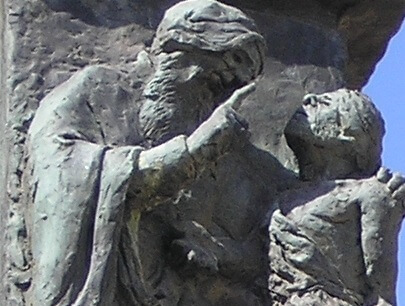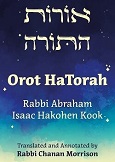
In the second chapter of Pirkei Avot (“Ethics of the Fathers”), we read some of the sayings of Hillel the Elder:
“Hillel would say:
Do not separate yourself from the community. Do not place absolute trust in yourself until the day you die. Do not pass judgment on your fellow until you have stood in his place. Do not say something that is not readily understood, hoping that eventually it will be understood. Do not say: ‘When I have free time, I will study.’ Perhaps this free time will never come.”
The overall message of Hillel’s warnings is: Be careful! Don’t store too much trust in the goodness of anyone, including yourself. No one is perfect, not even the greatest prophet or religious leader.
To illustrate the caution against excessive confidence in one’s own righteousness, the Talmud cites the example of Yochanan, the High Priest, who, despite eighty years of service in the holy Temple, veered into heresy in his later years.
Our tendency toward self-complacency often arises from the inevitable comparisons we make between others and ourselves. Hillel emphasizes the need for circumspection in this regard. Are we truly aware of the pressures and challenges that others face? Can we ever truly know how we would act if placed in their circumstances?
In a similar vein, Hillel cautioned against assuming that vague or ambiguous statements will be properly understood in the end. And finally, he warned against leaving Torah study to chance. We must consciously set aside time for study and spiritual growth.
The Importance of Community
However, Hillel’s first statement — אַל תִּפְרֹשׁ מִן הַצִּבּוּר — appears out of place. What is the connection between all of his other warnings and his counsel not to separate from the community? Why is it so important to be part of the community?
Rav Kook noted that it is the nature of individuals to change. People do not remain forever in the same state. Some advance in spiritual stature and holiness, while others (like Yochanan, the High Priest), regress. Thus, we should always have a healthy skepticism regarding an individual’s goodness and motivations — even our own.
Our community, on the other hand, is a community of faith. The purpose of its very existence is to be faithful to our collective aspirations. Unlike individuals, the community doesn’t change. Therefore, we should always be connected to this absolute goodness. We should be circumspect of ourselves and others, but the community as a whole, Hillel taught, can always be trusted.
Cleaving to the Soul of the Jewish People
This concept of connecting with the soul of the Jewish people holds a central place in Rav Kook’s thought. It has an interesting ramification when compared to the Hasidic institution of the tzaddik - a central righteous leader (a Rebbe), whose every move and utterance is closely followed and emulated.
As Rav Kook wrote in Orot:
“Bonding with a tzaddik, in order that the force of being of the tzaddik’s soul should influence the imperfect soul [of the follower] is a very respectable matter in the process of spiritual growth. However, it requires great caution. If the follower should err regarding a tzaddik and cling to his inner essence, he will also be adhering to his faults. These blemishes may sometimes be more detrimental to the follower than to the original person [the tzaddik].
Fortunate are those who cleave to the national soul of Israel, which is the absolute good. Through it, they are able to draw from God’s good light.”
(Adapted from Olat Re’iyah vol. II, p. 164; Orot Yisrael 3:3, p. 146)
Illustration image: ‘Hillel’s Teachings, bronze relief from the Knesset Menorah’ (wikimedia.org)





